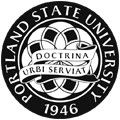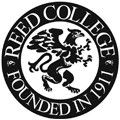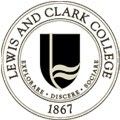Best Oregon Colleges & Universities

Oregon is on the cutting edge of higher education with the Oregon Promise program, an initiative that allows Oregon students to attend the first two years of community college at no cost. Oregon is the second state to do this, preceded only by Tennessee, in response to the growing national movement to make community college tuition free for all U.S. citizens. Students who are ready to take advantage of the Oregon Promise program and discover other college and university options in the state can begin here. We looked at factors like tuition rates, average financial aid and how well alumni are doing to provide a well-rounded view of higher education in Oregon.
Oregon College Leaderboard: Rankings
Choosing the best college to attend can be a daunting task. To help, prospective students can look at our rankings to discover information without having to do the in-depth research themselves. Our rankings take into account numerous factors, including tuition cost, the availability of financial aid and graduation rates. Students can look to these rankings as a barometer of quality during their intensive college search.
Rankings Methodology
- Located in Oregon
- Public or private not-for-profit
- Institutionally accredited
- At least 10 total programs
- Median annual alumni earnings 10 years after entering the college
- In-state tuition and fees for undergraduates
- Student/teacher ratio
- 6-year graduation rate
- % of students receiving institutional financial aid (first-time, full-time undergrads)
- Average amount of institutional aid awarded per student (first-time, full-time undergrads)
- Availability of placement services upon completion
- Availability of academic/career counseling services
- Availability of employment services
- 3-year student cohort loan default rate
Integrated Postsecondary Education Data System (IPEDS): National Center for Education Statistics
Latest 'Final Release' data available as of Fall 2016 College Scorecard: U.S. Department of Education
2-Year Programs
Southwestern Oregon Community College
Clackamas Community College
Columbia Gorge Community College
Chemeketa Community College
Mt Hood Community College
Linn-Benton Community College
Treasure Valley Community College
Portland Community College
Lane Community College
Blue Mountain Community College
Rogue Community College
Central Oregon Community College
Umpqua Community College
Clatsop Community College
Klamath Community College
Tillamook Bay Community College
4-Year Programs
Willamette University
Linfield College-McMinnville Campus
University of Portland
Pacific University
Lewis & Clark College
Oregon State University
George Fox University
Oregon Institute of Technology
University of Oregon
Portland State University
Warner Pacific College
Oregon Health & Science University
Marylhurst University
Concordia University-Portland
Northwest Christian University
Western Oregon University
Reed College
Corban University
Southern Oregon University
Multnomah University
Pacific Northwest College of Art
Eastern Oregon University
Search & Compare Colleges in Oregon
For some students, one college factor might matter more than another. For instance, one student might want to see a low student-to-teacher ratio while another might care more about student population. This search tool can allow students to find Oregon colleges based on their own unique qualifications and then compare the results side by side to make a more informed decision.
College Outreach Programs in Oregon
Planning for college should begin as early as possible. Some college planning and assistance programs begin as early as elementary school, but the majority of them really kick in during high school. These resources help students plan for college both financially and academically, help students get through their college years and then work to assist them in entering the workforce. Here are a few of the worthy programs offered to students at Oregon colleges.
FAFSA PLUSThis helpful program is designed to prepare students through FAFSA training, financial literacy information, scholarship resources and help with award letters. Over 110 sites in the state are currently hosting FAFSA events, which help students understand and complete the FAFSA well before the deadlines. This entirely free program is not just for high school students; those who are going back to school or heading to college for the first time after a period in the workforce are also welcome to attend any of the information sessions.
Oregon College Application WeekFilling out college applications can be very time-consuming and sometimes confusing. The college application week in Oregon is a week dedicated to giving students the time and space they need to focus on applications and complete them before the deadlines. The program is especially helpful for first-generation college students and those who have never considered going to college before as the application process can be quite rigorous. The program has been expanding rapidly; in 2014, 86 sites across the state served over 4,000 students.
ASPIREThis mentoring program matches supportive volunteers with middle and high school students in an effort to motivate them to work hard to meet their goals, especially the goals of higher education. Volunteers will help students with a variety of college planning questions and concerns, including helping them figure out what they want to do after high school, what kind of training it will take to get there and how to handle many steps along the way, such as admissions and financial aid packages
Cost Analysis of Colleges in Oregon
Understanding the cost of college can be confusing, and tuition can be jaw-dropping. Keep in mind, however, that those numbers are what you might pay without financial aid, and typically most students do get financial aid packages. These charts lay out what students can expect from tuition rates as well as the average financial aid packages that help offset those costs.
Source: CollegeBoard
Source: IPEDS
Source: IPEDS
* Institutional aid represents grant and scholarship funds directly awarded by a postsecondary institution.
* Financial aid data represents 4-year public and private nonprofit schools only.
Oregon's Most Affordable Colleges
Tuition is not the bottom line when it comes to paying for college, but net price is. The net price is what you get when you subtract financial aid from the cost of attendance. These rankings of the six most affordable colleges in Oregon can give students an idea of what their out-of-pocket costs might be.
- 1.
 Eastern Oregon University
Eastern Oregon University
$13,373 - 2.
 Southern Oregon University
Southern Oregon University
$13,551 - 3.
 New Hope Christian College-Eugene
New Hope Christian College-Eugene
$13,628
- 4.
 Oregon Institute of Technology
Oregon Institute of Technology
$13,809 - 5.
 Portland State University
Portland State University
$14,145 - 6.
 University of Oregon
University of Oregon
$16,057
Oregon College Net Price vs. National Average
Average
Annual Net Price
Source: College Scorecard
Note: Rankings/data represent 4-year public and private nonprofit schools only.
Oregon Colleges Offering Grads the Biggest Paychecks
One of the things many students are curious about is what the alumni are making now. Prospective students usually want to see if a college investment has paid off. These six colleges in Oregon produced the highest paid alumni in the state ten years after they started college. We have also compared them to the national average for a broader view.
- 1.
 Oregon Health & Science University
Oregon Health & Science University
$74,100 - 2.
 University of Portland
University of Portland
$51,700 - 3.
 Linfield College (All campuses)
Linfield College (All campuses)
$51,300
- 4.
 Oregon Institute of Technology
Oregon Institute of Technology
$50,100 - 5.
 Willamette University
Willamette University
$49,200 - 6.
 Oregon State University
Oregon State University
$46,400
Oregon Alumni Salaries vs. National Average
Annual Median Earnings
10 Years After Entering College
Source: College Scorecard
Note: Rankings/data represent 4-year public and private nonprofit schools only.
Colleges in Oregon With Least Alumni Debt
Most students might see graduation as the final hurdle before pulling in a nice paycheck. But what happens when most of that paycheck goes to pay for student debt? Fortunately, there are schools that tend to produce graduates with the lowest student debt after college, and these are the top six.
- 1.
 Oregon Health & Science University
Oregon Health & Science University
$15,364 - 2.
 Reed College
Reed College
$16,098 - 3.
 University of Oregon
University of Oregon
$21,535
- 4.
 George Fox University
George Fox University
$22,000 - 5.
 Lewis & Clark College
Lewis & Clark College
$22,389 - 6.
 Eastern Oregon University
Eastern Oregon University
$22,500
Oregon College Grad Debt Vs. National Average
Median Federal Student
Loan Debt After Graduation
Source: College Scorecard
Note: Rankings/data represent 4-year public and private nonprofit schools only.
What Does it Costs to Live in Oregon?
Though some points about cost of living in Oregon are on a par with the national average, such as utilities and grocery costs, according to Sperling's Best Places, others are above the national norm, meaning that Oregon can be a costlier place to live in the U.S. That's why it is important for students to look at the total college experience, including the area in which the college is located, to get a firm grasp of what it might cost to attend there. This chart breaks down the cost of living in various metropolitan areas and compares them to the national average.
| area | composite index | housing | groceries | utilities | transportation | health care | misc. |
|---|---|---|---|---|---|---|---|
| Statewide Average | 104% | 102% | 100% | 106% | 117% | 106% | 101% |
| Klamath Falls | 93% | 82% | 94% | 96% | 119% | 103% | 92% |
| Portland | 114% | 121% | 106% | 117% | 115% | 110% | 109% |
Source: The Council for Community and Economic Research
Oregon College Accreditation
When seeking out the ideal school, students should consider accreditation. A school that has earned accreditation has been evaluated by an independent body and found to meet the standards of a quality education. That quality matters for many reasons, including employers readily accept a degree from an accredited school as valid, students who attend accredited schools might be eligible for more financial aid and transfer credits are usually recognized by receiving institutions.
Oregon colleges earn accreditation through the Northwest Commission on Colleges and Universities In addition to regional accreditation, schools might also acquire programmatic accreditation. This means that a specific program has been evaluated and found to meet the requirements of a particular accreditation agency that focuses on that specific field. Here are a few examples:
- The National Council for Accreditation of Teacher Education accredits the bachelor's and graduate degrees for teaching professions at Oregon State University.
- The American Psychological Association, Commission on Accreditation accredits three doctoral degrees in psychology at the University of Oregon.
Oregon Cities with a Large College Presence
Eugene
As Oregon's second-largest city, Eugene is home to over 140,000 residents. One-third of those residents have completed at least four years of college, according eugene-or.gov, which might help explain the high percentage of doctors, lawyers, educators and architects in the area. Here are some of the colleges that students in Eugene might turn to in order to join the well-educated population.
| College Name | School Type | Annual Net Price | Annual Median Earnings 10 Years After College Only includes former students who received federal financial aid. |
|---|---|---|---|
 University of Oregon University of Oregon |
Public | $16,057 | $41,600 |
| A member of the Association of American Universities, University of Oregon is dedicated to interdisciplinary research and scientific research. Twenty-four thousand students are enrolled with the vast majority of them pursuing their education full-time. Students appear to love studying at UO as the one-year retention rate sits at 87 percent. The college offers 316 programs, ranging from metalsmithing, Chinese language and sculpture classes to accounting, political science and psychology. | |||
 Lane Community College Lane Community College |
Public | $9,115 | $28,100 |
| As the third largest community college in Oregon, LCC serves a student population of 36,000 with half of those students attending full-time. Those students can choose between four campuses and an Aviation Academy across the 4,600-square mile service area. Students get started with rolling admissions, which allows them to start their education at various times throughout the year. The college, founded in 1964, is a member of the League for Innovation in the Community College. | |||
 New Hope Christian College New Hope Christian College |
Private not-for-profit | $13,628 | $23,200 |
| Established in 1925, NHCC has a strong focus on ministry studies. Though most programs culminate in a bachelor's degree, the school also offers an associate in ministry leadership and a master's in Christian ministry; these degrees are available online. Students receive excellent attention at NHCC with a 10-to-1 student-to-teacher ratio. Those instructors are at the top of their game with 75 percent of full-time instructors holding a terminal degree in their field. | |||
Portland
The city of Portland acts as an arts and culture hub in the Pacific Northwest. In addition to a lively atmosphere, the city also offers over a dozen institutions of higher learning that help students meet their academic goals. Below are a few colleges and universities to consider in the area.
| College Name | School Type | Annual Net Price | Annual Median Earnings 10 Years After College Only includes former students who received federal financial aid. |
|---|---|---|---|
 Portland State University Portland State University |
Public | $14,145 | $42,800 |
| Over 29,000 students make their way to PSU for small, intimate classes, with a student-to-teacher ratio of 19-to-1. Undergrads at this popular university can choose from 120 majors, minors and concentrations within seven distinct schools, while graduate students can enroll in more than 70 master's programs, 30 graduate certificate programs and 18 doctoral programs. Online programs are also a very popular addition to PSU's lineup and include topics in crime analysis, infant and toddler mental health and craft brewing. | |||
 Portland Community College Portland Community College |
Public | $8,335 | $33,100 |
| As the largest postsecondary institution in the state, PCC serves a whopping 90,000 students each year. The school consists of four large campuses, eight centers, numerous independent locations and a comprehensive online presence. The average age of students here is 29, and most of them are attending PCC to earn credits toward their bachelor's degree. | |||
 Concordia University Portland Concordia University Portland |
Private not-for-profit | $19,866 | $41,800 |
| Though Lutherans founded this private college, the doors are open to those of any faith. Founded in 1905, the college was originally a four-year academy for pastors and parochial school teachers. Located in a residential area of Portland, today, the school sits on 24 acres and welcomes over 2,000 students each year in a variety of majors. In 2002, the college branched out with their first fully online program. | |||
Source: College Scorecard
Oregon College Resources for Further Research
Seeking out college resources is a very important part of the journey to higher education. These are a few resources unique to Oregon to help students get started on creating their resource toolbox.
College Goal OregonThis initiative by the state of Oregon encourages students to get the ball rolling for college by hosting FAFSA events and the like.
Office of Community College and Workforce DevelopmentPart of the Higher Education Coordinating Commission, this site focuses on preparing workers for skilled trades through community college and then connecting grads with businesses who are hiring.
Office of Student Access and CompletionThis site helps individuals plan and pay for college by introducing numerous state and federal programs that might be of help to aspiring students.
Oregon Alliance of Independent Colleges and Universities (OAICU)OAICU is made up of 12 colleges plus six affiliate colleges and universities all dedicated to ensuring educational achievement for their students.
Oregon Higher Education Coordinating Commission (HECC)The HECC serves all the higher education needs for the state, including public and independent schools, vocational and trade schools, and career colleges.
Worksource OregonGraduates of Oregon colleges can sort through job listings, resources, information on employment processes and training options on this website.
LearnHowToBecome.com is an advertising-supported site. Featured or trusted partner programs and all school search, finder, or match results are for schools that compensate us. This compensation does not influence our school rankings, resource guides, or other editorially-independent information published on this site.
View the most relevant programs for your interests and compare them by tuition, acceptance rate, and other factors important to you.